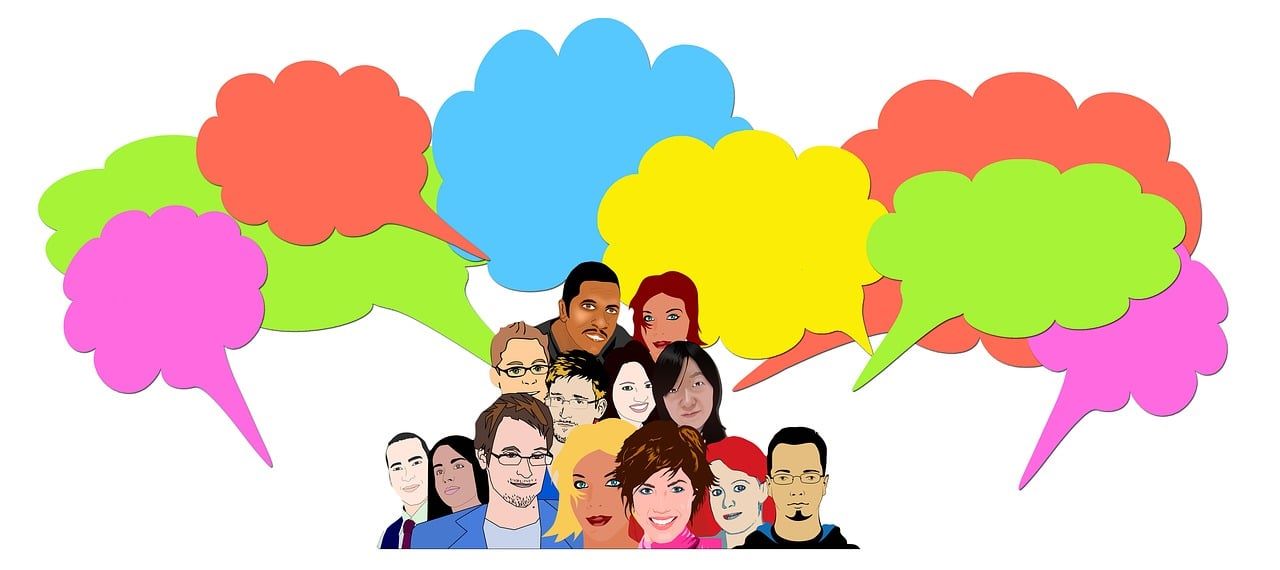Employee mental health is on the decline, and the numbers are alarming. According to a study conducted in January 2024 by Great Place to Work, only 56% of employees report having good mental health. At the same time, mental health has become the leading cause of long-term sick leave, according to Malakoff Humanis. These figures reveal a concerning situation for companies, where employee well-being is directly linked to their productivity and the overall effectiveness of the organization.
Faced with this reality, mental health in the workplace is no longer a topic that can be ignored. It is now a major issue for executives, managers, and HR teams. Companies must take action to better prevent psychological distress and foster a more inclusive and supportive work environment.
At Human Déclic, we firmly believe that every organization can play a key role in the prevention of mental health issues and the inclusion of employees in distress. This is why we have developed awareness workshops, such as the Mental Health Fresque for All, to help companies understand and address this issue in a proactive and constructive way. These workshops provide a fun and interactive framework to encourage open dialogue and address this still too-often taboo subject.

Mental Health in the workplace: a major challenge
1.1. Key statistics on employee mental health in 2024
The 2024 statistics show a worrying decline in employee mental health. According to the Great Place to Work study published in January 2024, only 56% of employees believe they have good mental health. This figure, which has decreased compared to previous years, reflects a growing malaise within organizations. Other studies, such as the one conducted by Malakoff Humanis, reveal that mental health is now the leading cause of long-term sick leave, surpassing physical illnesses such as musculoskeletal disorders.
These data highlight the urgent need to address mental health in the workplace. The increase in sick leave related to psychological issues has a significant impact not only on individuals but also on companies, forcing them to rethink their workplace wellness policies.
1.2. Consequences for companies
Mental health issues do not only affect the individuals concerned, but they also have a broad impact on the company’s overall performance. The consequences are manifold:
- Prolonged sick leave: With the rise in psychological sick leave, companies are faced with extended absences that disrupt operational continuity. These absences come at a high cost, both in terms of human resource management and productivity.
- Decline in productivity: Employees experiencing psychological distress may suffer from a lack of concentration, reduced efficiency, or decreased motivation, directly impacting their daily performance.
- Impact on teams: Repeated absences, along with colleagues in distress, often create tensions within teams. Present employees may feel overburdened or frustrated by the deteriorating work atmosphere, which exacerbates collective dissatisfaction.
1.3. The Role of Managers and Companies

Faced with this situation, managers and companies have a role to play in preventing crises and supporting employees in distress. They have the possibility to detect signs of discomfort and act accordingly.
- Crisis prevention: It is important to implement proactive prevention policies within the company. This can include stress management training, workplace wellness initiatives, or the creation of a work environment conducive to a work-life balance.
- Support for employees in distress: Managers can be trained to recognize signs of psychological distress and be able to direct employees to appropriate resources, whether it’s psychological support services or adjustments to working conditions.
- Creating a climate of trust: Mental health remains a sensitive and often taboo subject in the workplace. Managers, therefore, have the responsibility to create an inclusive and open work environment, where employees feel comfortable expressing their difficulties without fear of stigmatization.
The commitment of companies to prevention and support for employees facing mental health challenges is more necessary than ever. By integrating these topics into their strategy, they can not only improve the well-being of their teams but also strengthen long-term cohesion and performance.
A fun and impactful tool to talk about mental health
2.1. Presentation of the Fresque
The Fresque is an innovative and interactive workshop inspired by the famous Climate Fresque. Adapted to mental health issues, this approach allows employees and managers to be sensitized in a fun and engaging way. Through a visual and participatory format, the fresque helps participants better understand the complex mechanisms of mental health, while promoting discussion and collective reflection.
The concept of the fresque is based on a series of interactive activities where participants collaborate to decipher the links between different mental health factors, whether they are internal (emotional, psychological) or external (work environment, life events). Everyone is concerned about mental health, and this tool allows for open dialogue while providing a deep awareness of the issues surrounding this often-taboo topic.

2.2. Workshop objectives
The Fresque workshop pursues several key objectives for companies and their employees:
- Mental health awareness: This workshop aims to raise awareness among both employees and managers about mental health issues. It addresses prejudices and helps participants understand that mental health is not just for a minority, but a concern for everyone.
- Understanding key factors: One of the main objectives is to enable participants to grasp the fundamental factors influencing mental health. These may relate to overall well-being, periods of distress, or environmental factors such as working conditions or social pressure.
- Early detection and prevention: By understanding the early signs of psychological distress, companies can better anticipate and act to prevent crisis situations. The workshop provides the tools necessary to identify these signs and intervene early.
2.3. Workshop structure
The Fresque workshop is based on a participatory methodology, where employees play an active role throughout the process:
- Active participation: Participants work together, which fosters dynamic interaction and collective reflection. Each person contributes to building the fresque by identifying and connecting the various elements related to mental health.
- Exploring the different dimensions of mental health: The workshop explores all the dimensions that make up mental health: from well-being to distress, from personal factors to environmental factors. This allows for a holistic approach that encompasses both individual and organizational aspects.
- Open discussions to break the silence: One of the great benefits of the workshop is that it encourages open and honest discussions about mental health. Breaking the silence in a caring and secure environment is essential to breaking taboos and allowing participants to express their feelings or observations.
This workshop thus offers a unique opportunity to address mental health from both an educational and practical angle, stimulating collective reflection on actions to be taken, whether at the individual or organizational level.
Mental health factors: understanding and acting
3.1. Levers that everyone can act on
Mental health is influenced by many factors, some of which depend directly on lifestyle choices and personal decisions. Everyone can act on these levers to improve their well-being daily:
- Lifestyle habits: Adopting a balanced lifestyle, including sufficient sleep, a healthy diet, and regular physical activity, is essential for maintaining good mental health. These elements are often the first to be affected in times of stress, anxiety, or burnout.
- Stress management: Learning to manage stress is crucial to preventing its negative effects on mental health. Techniques such as meditation, mindful breathing, or time management can help control stressful situations more effectively.
- Work environment: The environment in which we work plays a role. It’s important to identify what, in the work environment, can be a source of well-being or, conversely, stress, and seek solutions to improve it, whether by adjusting the space or discussing it with supervisors.
These levers, although personal, can be influenced by the organization in which one works, emphasizing the importance of a collective commitment to support these actions.
3.2. External factors influencing Mental Health
In addition to individual actions, there are external factors that influence mental health and are more difficult to tackle alone:
- Working conditions: Work environments where there is constant pressure, excessive workloads, or a lack of recognition can create a breeding ground for mental exhaustion. Companies can recognize these dynamics to improve the conditions in which their employees operate.
- Social pressure: Expectations from superiors, peers, or society at large can create intense psychological pressure. This pressure can lead to anxiety, or even a feeling of never doing enough, causing a decline in mental well-being.
- Personal events: Life events, such as family problems, financial difficulties, or personal upheavals, can also weigh heavily on mental health. It is important for the company to consider these aspects and offer appropriate resources to support employees during difficult times.

3.3. How companies can support their employees
Companies have an essential role to play in supporting the mental health of their employees. Several concrete actions can be implemented to create a work environment conducive to mental well-being:
- Providing resources: Companies can offer psychological support services, employee assistance programs, or even stress management and mental health training. For example, mental health first aid training enables employees to better understand and respond to situations of mental distress. Learn more about these trainings on our dedicated page: Mental Health First Aid.
- Adapting work environments: Creating a healthy work environment requires practical adjustments, such as flexible working hours, dedicated relaxation spaces, or better-distributed workloads to avoid burnout.
- Inclusion of people in difficulty: It is essential to foster a culture of inclusion and kindness. Companies must ensure that employees in difficulty do not feel isolated. Encouraging open discussions about mental health and offering support solutions can transform the work environment into a place where everyone feels heard and supported.
By taking proactive initiatives, companies can become a true pillar of support for their employees, while contributing to their personal and professional fulfillment.
Resources and actions to preserve Mental Health
4.1. Professional resources and solutions to help preserve or restore Mental Health
To preserve the mental health of employees or help them recover from difficulties, it is essential to provide a range of professional resources. These resources, whether internal or external, offer tailored support for each situation:
- Psychologists and therapists: Consulting mental health professionals, such as psychologists or psychotherapists, is a crucial first step for employees in distress. They can offer regular consultations, cognitive-behavioral therapy, or simply a listening ear for expressing emotions and difficulties.
- HR advisors and coaches: HR services play a key role in supporting mental health. HR advisors trained in stress management, workplace well-being and mental health can provide advice, tools, and guidance toward appropriate solutions. Additionally, coaches can assist employees in managing their emotions and building resilience in the face of daily challenges.
- Support networks: Internal support networks are highly effective initiatives for creating solidarity within the company. These can take the form of discussion groups or support circles facilitated by experts or volunteers trained in active listening. These networks provide a space to share experiences, break taboos, and offer mutual support.
These resources, whether professional or collective, are essential for maintaining mental balance and supporting employees during difficult times.
4.2. How to integrate these resources into the company
For employees to fully benefit from available resources, it is important to integrate them in a structured and coherent manner within the organization. Here are some concrete actions for companies:
- Training managers: Managers play a crucial role in detecting and supporting employees in difficulty. It is therefore essential to provide them with appropriate training in mental health management. These trainings can include modules on recognizing early signs, how to engage in sensitive conversations, or how to direct employees to the right resources. A trained manager can be the first point of support for an employee in distress.
- Raising employee awareness: Raising awareness across all teams about mental health is a key step in creating an inclusive and caring company culture. Organizing awareness workshops or internal campaigns about mental well-being helps demystify the subject and encourage open dialogue. This proactive approach helps prevent crises and normalizes the idea that mental health is an essential component of workplace well-being.
- Creating an environment conducive to listening and dialogue: For the implemented resources to be fully effective, the company must ensure that employees feel safe to express their difficulties. This means fostering a culture of active listening, openness, and mutual support. Encouraging regular discussion spaces, constructive feedback, and a workplace well-being policy helps prevent crises and creates a trusting environment.
By integrating these resources and adopting a holistic approach to mental health, companies can sustainably support their employees and foster an environment where everyone feels cared for and valued. Learn more about the solutions we offer for companies by visiting our dedicated page: HR Solutions for Companies.
Conclusion: towards a collective and inclusive approach to Mental Health
5.1. Personal and collective reflection
Mental health is not just an individual matter; it requires a collective and inclusive approach to be fully integrated into company culture. A better approach to mental health offers numerous benefits, both for employees and for the organization.
For employees, this means better well-being, more effective stress management, and a reduction in the risk of psychological issues. For the company, the impact translates into increased productivity, reduced absenteeism, and an improvement in the work environment. When everyone feels cared for and supported, this fosters a sense of belonging and strengthens team cohesion.
5.2. The importance of regularly and proactively addressing these issues
It is essential to regularly address mental health within organizations. Not waiting for a crisis to occur, but instead acting proactively by offering regular initiatives of awareness and prevention, helps normalize the conversation around these issues. This includes organizing workshops, ongoing training for managers, and providing resources for employees. Creating a routine of exchange about mental health helps prevent crises and build a culture where everyone’s well-being is a priority.
5.3. Call to Action
Mental health should no longer be a taboo subject in companies. Human Déclic organizes interactive workshops to demystify this issue, encourage open dialogue, and initiate constructive discussions about mental health within organizations. These workshops offer opportunities to create spaces for exchanges where everyone can feel heard and supported, while learning concrete tools to preserve their mental balance.
We invite you to contact us to learn more about mental health and its integration into the professional environment. Together, let’s ensure that this issue becomes a priority in our companies, so that everyone feels valued and cared for.
Call to Action
Contact Human Déclic to raise awareness and act for mental health in your organization. Sessions will be held in your offices or in our offices. Sign up now to secure your spot and begin your journey towards better mental health care in your company. Reserve your spot through our Calendly platform
Join us and commit to lasting change within your organization.





